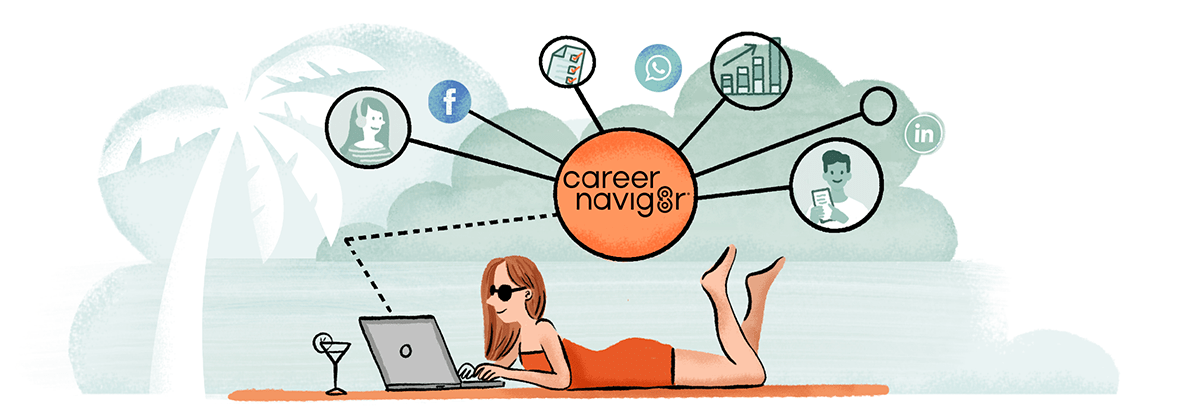The Personal and Professional Advantages of Being a Mentor

There are many reasons to become a professional Mentor. Some people start mentoring because it gives them the freedom to work from home and set their own hours. Others do it because they’re passionate about their job and would like to share that passion further. On top of that, many people become Mentors simply because it’s an excellent way to earn money outside of their main job role.
But the benefits of being a Mentor run further than many people assume. Today we’ll be exploring the ways in which being a Mentor can help you to improve your own skills both personally and professionally, and lead to a more fulfilling work/life balance.
What are the Benefits of Being a Mentor?
Broadly speaking, the advantages of being a Mentor fall into two categories: active and passive.
The active reasons are those we’ve already covered. They’re the motivations that often lead people towards mentoring in the first place and they’re the benefits we tend to think of first when weighing the value of a career. That being said, there are just as many ‘passive’ benefits to being a Mentor that people only start to discover after becoming one.
By passive benefits, we’re talking about all the ways in which being a Mentor will help to grow you both as an employee and as a person. This can mean developing soft skills – such as communication and staff training – but it can also be about empathy and relating to others.
Passive benefits, by their nature, are the kind of things we overlook but that can have a powerful long-term effect on us nonetheless.
Professional Growth
In many ways, mentoring is all about encouraging professional growth. Whether that’s helping a Mentee find the job role they’re looking for, or helping them improve within that role, a Mentor is always focused, one way or another, on pushing their Mentee’s professional skills forwards.
It should come as no surprise, therefore, that Mentors often improve their own professional skills through the process. Not only does the responsibility of mentoring encourage you to step up to the plate and show just what you can do, but it also lets you revisit some of those early lessons, often reinforcing valuable principles or else allowing you to question long-standing assumptions.
Empathy and Patience
In all walks of life, the value of empathy and patience cannot be understated. The further you climb in your own career, the easier it can be to lose sight of how it feels to work in a less senior role.
If you’ve ever worked for a company where you felt that the management was out of touch with the rest of the staff then you’ll have seen this problem first-hand. Large companies are particularly prone to this as communication gaps grow and employees across the company become too focused on their own role at the expense of wider productivity.
Working with a Mentee will transform you into the perfect person to combat this problem. Not only will you have a direct insight into the experience of those who are new to the role, but you’ll also be encouraged to draw upon your own experiences and think back to how it felt to be where they were.
And the best part is that these are benefits that will easily extend outside the professional sphere. After all, you really can never have too much patience.
Well-being Benefits

Countless studies have demonstrated that mindfulness practises improve people’s well-being. In particular, the act of meditation can help people to work through mental health issues, to lower their stress levels, and become happier and more fulfilled in their day to day life.
But why does meditation have such a valuable effect? And how can mentoring help you achieve something similar?
At its core, meditation gives people a chance to stop and think in a way that they otherwise might not. It lets people ground themselves and consider the world around them.
In some respects this is not dissimilar to mentoring. Mentoring also encourages people to stop and consider another person’s experiences. In a very literal sense, it pushes you to be more mindful.
Job Satisfaction
It’s not unusual for people to strongly identify with their job. After all, there’s a reason that so many common surnames were originally professions. As such, many people place a great importance on the feeling that their job is about more than just making money.
Job satisfaction can come from any number of places but there are few more effective ways to feel happy and fulfilled in your job than the knowledge that you’re actively helping someone else achieve one of their most important life goals.
By becoming a Mentor, you’ll be improving other people’s lives, all while finding more meaning in your day-to-day work. Sign up today at Career Navig8r and experience the benefits of being a mentor for yourself.


